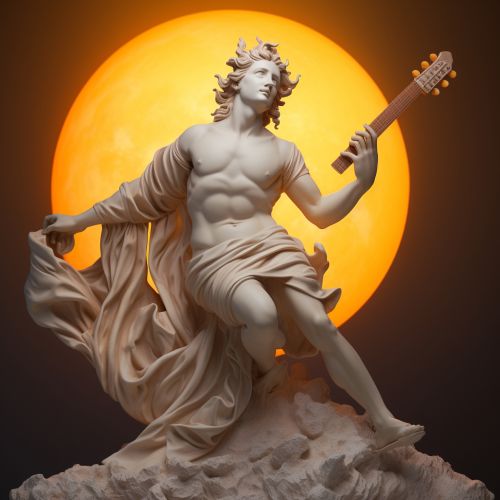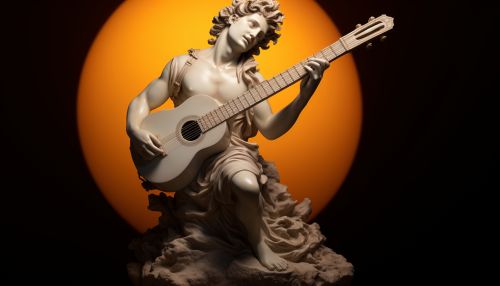Apollo
Origins and Mythology
Apollo is one of the most important and complex of the Olympian deities in ancient Greek religion and mythology. The national divinity of the Greeks, Apollo has been recognized as a god of archery, music and dance, truth and prophecy, healing and diseases, the Sun and light, poetry, and more. He is the son of Zeus and Leto, and the twin brother of Artemis, goddess of the hunt. Seen as the most beautiful god and the ideal of the kouros (a beardless, athletic youth), Apollo is considered to be the most Greek of all the gods.


Apollo is known in Greek-influenced Etruscan mythology as Apulu. In the Roman Empire, the Cult of Apollo was widely spread, as he was borrowed from the Greeks and became a favorite deity of the emperors. As the patron of Delphi (Pythian Apollo), Apollo is an oracular god—the prophetic deity of the Delphic Oracle. Medicine and healing are associated with Apollo, whether through the god himself or mediated through his son Asclepius, yet Apollo was also seen as a god who could bring ill-health and deadly plague. Amongst the god's custodial charges, Apollo became associated with dominion over colonists, and as the patron defender of herds and flocks. As the leader of the Muses (Apollon Musegetes) and director of their choir, Apollo functioned as the patron god of music and poetry. Hermes created the lyre for him, and the instrument became a common attribute of Apollo. Hymns sung to Apollo were called paeans.
Cult of Apollo
Apollo's cult was already fully established when written sources commenced, about 700 BCE. Apollo became extremely important to the Greek world as an oracular deity in the archaic period (800–500 BCE), and the frequency of his name in inscriptions increased dramatically in comparison to other deities. Apollo's first temple at Rome was established in the 430s BCE on the Flaminian fields, replacing an older cult site there known as the "Apollinare". During the second Punic war in 212 BCE, the Ludi Apollinares ("Apollonian Games") were instituted in his honor. In the time of Augustus, who considered himself under the special protection of Apollo and was even said to be his son, his worship developed and he became one of the chief gods of Rome. After the battle of Actium, which was fought near a sanctuary of Apollo, Augustus enlarged Apollo's temple, dedicated a portion of the spoils to him, and instituted quinquennial games in his honor. He also erected a new temple to the god on the Palatine hill. Sacrifices and prayers on the Palatine to Apollo and Diana formed the culmination of the Secular Games, held in 17 BCE to celebrate the dawn of a new era.
Apollo in Art
In art, Apollo is depicted as a handsome, beardless young man with long hair and an ideal physique. As patron of Delphi (Pythian Apollo), Apollo is depicted with a laurel crown, a cithara, or a bow. The Apollo Belvedere is a marble sculpture that was rediscovered in the late 15th century; for centuries it epitomized the ideals of Classical Antiquity for Europeans, from the Renaissance through the 19th century. The marble is believed to be a Roman copy of a lost bronze original made between 350 and 325 BCE by the Greek sculptor Leochares.
